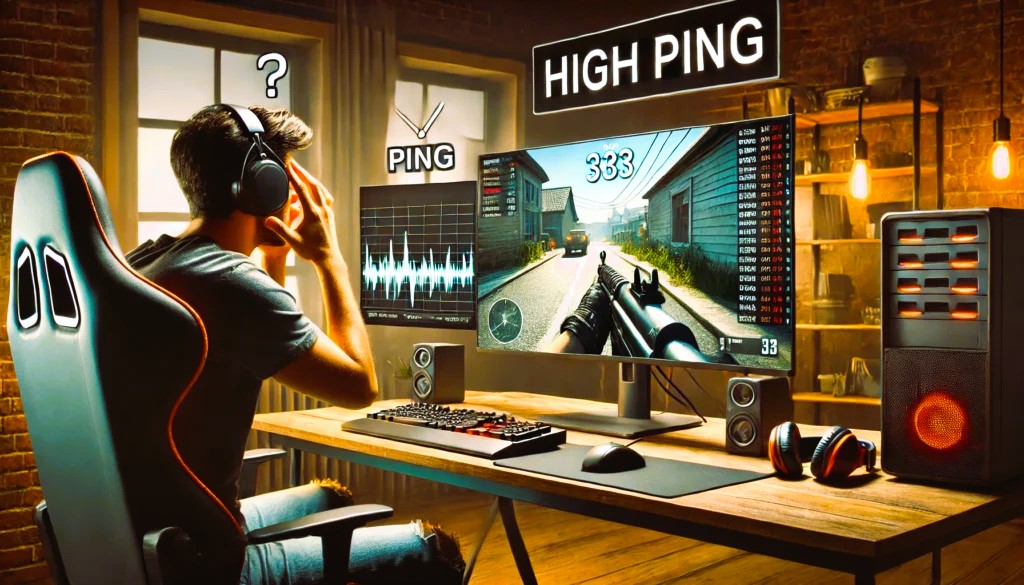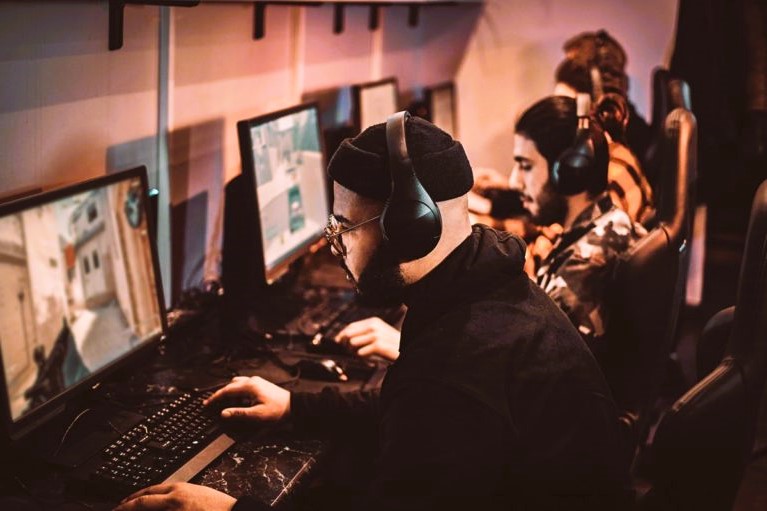In the realm of competitive gaming, where split-second decisions can determine victory or defeat, network performance is of utmost importance. One of the most crucial factors affecting online gaming performance is ping. Understanding ping and its implications is vital for any serious gamer looking to optimize their gameplay. This article explores why low ping is critical for competitive gaming, how it affects gameplay, and what players can do to achieve the best possible connection.
Understanding Ping
Ping is a network utility tool that measures the round-trip time for data packets to travel from a player’s device to a server and back. This measurement is usually expressed in milliseconds (ms). In gaming, a low ping indicates a fast and responsive connection, while a high ping signifies delays in data transmission. The ideal ping for competitive gaming is generally considered to be below 20 ms, with 20-50 ms being acceptable for most games. Anything above 100 ms can lead to noticeable lag and adversely affect performance.
The Importance of Low Ping in Competitive Gaming
1. Improved Reaction Times
In competitive gaming, split-second decisions can lead to significant outcomes. Players often rely on quick reflexes to respond to in-game events, whether dodging an attack, aiming at an opponent, or executing a strategy. A low ping means that players receive real-time feedback from the server, allowing for quicker reaction times. Conversely, high ping can introduce delays that hinder a player’s ability to react promptly, leading to missed opportunities and, ultimately, losses.
2. Enhanced Accuracy
Low ping contributes to improved accuracy in shooting games and other competitive genres. When a player fires a weapon or performs an action, the server needs to register that action almost instantaneously. A high ping can result in what is known as “bullet lag,” where shots may not register as intended. This discrepancy can be particularly detrimental in first-person shooters (FPS), where precision is key to success. A player with low ping will experience a more direct correlation between their actions and the game’s response, resulting in better overall performance.
3. Smoother Gameplay Experience
A stable and low ping leads to a smoother gameplay experience. Players with low ping will experience less stuttering and lag, allowing for a more immersive gaming experience. In fast-paced games, any disruption can break a player’s focus and impact their performance. Consistent, low ping ensures that players can maintain their rhythm and flow, which is crucial in competitive scenarios.
4. Reduced Risk of Connection Issues
High ping can lead to connectivity issues, such as packet loss and disconnections. These issues can be particularly frustrating during competitive matches, where losing connection can result in a forfeit or disadvantage. By aiming for low ping, players can minimize the likelihood of encountering these issues, ensuring they remain connected throughout their gameplay.
5. Better Server Performance
Low ping not only benefits individual players but also contributes to overall server performance. When players have lower latency, the server can process their actions more efficiently, resulting in a better experience for everyone connected. This is especially important in multiplayer games, where many players interact in real-time. A stable connection helps maintain the integrity of the game, ensuring that all players have a fair and enjoyable experience. Like this article? Read also about regular backups.
How to Achieve Low Ping in Competitive Gaming

Achieving low ping is a combination of various factors, including hardware, network configuration, and game settings. Here are some tips to help players reduce their ping:
1. Choose the Right Server
Most competitive games allow players to select their server location. Choosing a server that is geographically closer to the player can significantly reduce ping. Servers that are located further away typically result in higher ping due to the increased distance data packets must travel.
2. Use a Wired Connection
While Wi-Fi is convenient, a wired Ethernet connection generally provides a more stable and reliable connection. Wired connections reduce the risk of interference and latency issues commonly associated with wireless networks, leading to lower ping.
3. Optimize Network Settings
Adjusting network settings can also help reduce ping. Players can prioritize gaming traffic over other internet activities by configuring Quality of Service (QoS) settings on their routers. This ensures that gaming packets are transmitted with higher priority, minimizing lag during gameplay.
4. Limit Background Applications
Running multiple applications that consume bandwidth can negatively impact ping. Players should close unnecessary programs, especially those that use the internet, while gaming. This will free up bandwidth for the game and help maintain a stable connection.
5. Invest in Quality Equipment
Using high-quality networking equipment can make a significant difference in ping. Players should consider investing in a reliable router, modem, and Ethernet cables to ensure optimal performance. Additionally, keeping hardware updated can prevent connectivity issues that may lead to high ping.
6. Use Gaming VPNs
In some cases, using a gaming VPN can help reduce ping. A VPN can create a more direct route for data packets to travel, potentially lowering latency. However, this can vary based on the VPN provider and the server locations. Players should research and test different VPNs to find the best option for their needs.
In competitive gaming, low ping is critical for achieving the best possible performance. From improved reaction times and accuracy to a smoother gameplay experience and reduced connectivity issues, the benefits of low ping are undeniable. Players must take proactive steps to minimize their ping, including choosing the right server, optimizing their network settings, and using quality equipment.
As the gaming landscape continues to evolve, understanding the importance of low ping and its impact on gameplay will remain a fundamental aspect of competitive gaming. For more information on internet latency and its effects, check out the Wikipedia page on Ping (networking).




